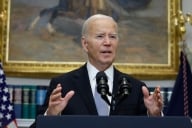You have /5 articles left.
Sign up for a free account or log in.
Today’s higher education leaders must be adept at navigating not only problems with clear, “conventional solutions,” but also “adaptive challenges” related to the “demographic, economic and cultural transitions taking place,” according to a new report from the American Council on Education. The paper, called “Looking Back and Looking Forward,” is a review of the ACE Fellows Program, which prepares faculty and staff members and administrators for senior leadership positions in a cohort-based mentorship model.
The report argues that professional development must prepare senior leaders not only to work effectively within their individual positions, but also through a “collective approach that benefits the individual, institutions and the enterprise.” Findings are based on a survey of those who have been involved in the program and interviews, with 98 percent of responding fellows saying they agree that the program prepared them from a senior leadership position. “One-on-one conversations with mentors” emerged as the most significant aspect of the placement experience that prepared fellows for senior leadership positions.
The report identifies one “central dilemma” as how leadership is defined and who leads. “Scholarship and conventional wisdom tell us that professionals up and down the line must have the leadership skills and expert knowledge necessary to flex to any challenge,” the report says. “Nevertheless, leadership development programs tend to be designed around the very real hierarchies that exist on college and university campuses.”









